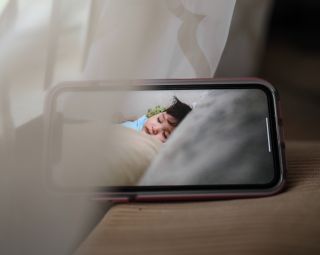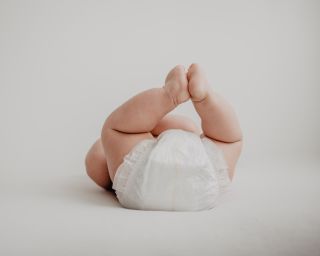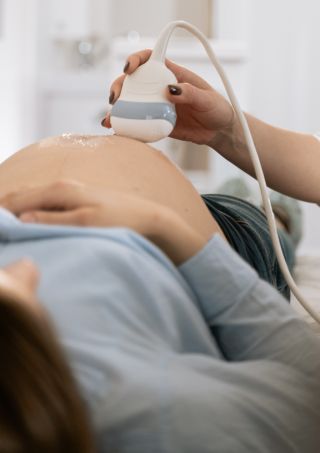Anxiety
Are the Benefits of Babytech Products Worth the Added Price?
How smart infant products may impact parental mental health.
Posted December 4, 2023 Reviewed by Michelle Quirk
Key points
- Pregnant and new parents should consider all aspects of babytech products.
- Babytech products may create peace of mind and a sense of closeness for parents.
- Products may also create false alarms, obsessive monitoring, and data tracking that increase parental anxiety.

Generation Alpha is the most tech-infused cohort, born in or after 2010—the same year iPads launched. Not surprisingly, the products used to assist parents in caring for this generation are higher tech, too.
While baby products have always existed, a new sector of smart “babytech” products, apps, and gadgets is now being marketed to the modern parent. The global babytech market is valued at US $197.23BN, growing at an estimated 8.9 percent over the next 8 years. In recent years, leading parenting websites have been featuring these babytech products as “must-have” items for baby registries to provide increased oversight and monitoring, improve infant safety, and create peace of mind for new parents.
As a therapist certified in perinatal mental health, I was curious about a few things:
- Do these items live up to their claims?
- How is the birth of this new babytech market impacting parental mental health?
I reviewed research and existing data for three categories of baby items and will summarize them below:
Wearable Digital Monitors
Wearable digital baby monitors, typically used during sleep, are snapped onto baby’s clothes or attached directly to the body. The wearable monitors feature integrated smart apps that record and transmit the baby’s vital signs, such as heart rate and oxygen levels, back to the caregiver. Parents can monitor this information and receive alerts throughout the night. For example, one smart wearable monitor provides red (flashing) alerts to indicate the baby’s vitals are “critical,” meaning the heart rate is either high or low or oxygen levels are low.

What is the safety, accuracy, and effectiveness of these products? To date, there isn’t evidence to answer this question. They are not medical devices and, as such, they are not reviewed by the Food and Drug Administration (FDA).
What has been reported is that wearable monitors have produced false alerts in healthy infants. Rather than offering assurance, false alerts may create parental anxiety and also lead to unnecessary emergency medical visits based on an incorrect belief that a baby’s health is at risk.
Based on these limitations, parents have voiced concerns about parental anxiety created by false alerts. Parents have additionally voiced concerns over the potential to "get obsessed" with the data (monitoring and tracking) in ways that can also increase anxiety.
Overall, the American Academy of Pediatrics discourages the use of continual monitoring of healthy full-term infants’ vitals at home because it is not a strategy that reduces the risk of sudden infant death syndrome (SIDs), and the lack of proven benefits do not outweigh the drawbacks.
Smart Changing Pads and Scales

Smart changing pads can better be described as smart infant scales that you can also use for placing a baby on during diaper changes. The main feature of these devices is that they can detect and track sensitive changes to infant weight along with other chosen data (e.g., number of diaper changes, infant growth). This feature could be particularly helpful for breastfeeding parents who are unsure of the amount of milk taken in during a feed and if there are growth concerns. They can also be beneficial if an infant has multiple caregivers in the home (e.g., dual-parent household or a nanny) as a means of tracking and communicating chosen information across users.
However, these are also not medical devices and can give inconsistent and inaccurate readings. Similar to the concerns above, they can create unnecessary caregiver anxiety if the device provides inaccurate information either due to device inaccuracy or user error. Additionally, like with other digital devices, a caregiver could become obsessive in using the app. For example, a parent could fall into a pattern of overchecking and overcollecting data as a means of attempting to ease anxiety about infant weight gain.

Doppler Apps
A highlight for pregnant patients during prenatal visits is hearing their baby’s heartbeat when a trained, medical professional uses a Doppler. Tech companies have capitalized on this and created Doppler apps to recreate this experience at home. Marketing messaging for Doppler apps claims to offer pregnant parents an opportunity to “experience your pregnancy in a whole new way” and “get closer to your baby.”
Similar to the above-described devices, these apps are not medical devices, and their users (i.e., a parent at home) are likely not medically trained professionals. The FDA has advised against at-home Dopplers because devices used to listen to the fetal heartbeat should only be used by someone trained to do so. Otherwise, there are risks of improper use. The Doppler app could give a person a false sense of security by mistaking sounds heard by the app for their baby’s heartbeat. Alternatively, if a user cannot detect a heartbeat because of user error it can create unnecessary panic and anxiety. Finally, like the other digital devices described that provide infant data, a parent could become obsessive in using the app in an attempt toward assurance seeking.
Bottom Line
There are a few themes that cut across these categories of babytech items. These items are marketed to parents to offer a closer relationship with their infant through new, more technologically advanced ways of monitoring and an increased sense of security. In reality, advertising is targeting new parents’ fears of the unknown, which has long been a successful marketing strategy: "If only you buy the best product, you’ll be a good parent, your baby will be healthy, and your family will be happy." The truth is, these are not medical devices, so they cannot guarantee reassurance and may produce false readings. And, because they are technologically advanced, they come at a higher price point.
Parents should consider a few things when deciding if having babytech items would benefit them or not:
1. Who are you as a parent? What is your mental health disposition?
Will having a smart infant device increase your confidence as a parent, or will it cause undue anxiety and stress? How will the data inform and impact your parenting? For example, perhaps there are multiple caregivers in your home, and having a device that captures data could help communicate and coordinate care. Or, perhaps having a device that captures data could create or exacerbate perinatal mental health concerns (see point below).
Know yourself. If you are susceptible to anxiety disorders, especially obsessive-compulsive disorder (OCD), be aware of how these devices might impact you and your parenting. A new parent vulnerable to these disorders might become obsessed with the device’s monitoring and tracking capabilities. Would having more and accessible data at your fingertips lead you to fall into a rigid pattern of overchecking and overcollecting data? If your baby’s data show small fluctuations, which are normal in typical development, would this cause you alarm and exaggerated anxiety responses?
2. Who is your baby? What is their disposition and health needs?
Would your child benefit from increased monitoring or from having additional data to give to providers? While increased monitoring could add benefits for certain higher-risk infants, parents should work with health providers to create an infant care plan and receive recommendations for the appropriate devices to use. Additionally, smart devices for at-home monitoring are not a replacement for medical devices utilized by trained professionals, direct supervision, and safe sleep practices.
3. What is your budget?
Recognize that most babytech items come at an increased cost. What is your price sensitivity point for each baby item on your registry? Based on the answers to the questions above, do the benefits of these items for you and your family warrant the price?
References
Christine Hall. Babytech Boom: Millennials, Startups Pave Way For Growth. Crunchbase News. May 8, 2020.
Industry Global News. Global Baby Tech Market is Forecasted to Witness Lucrative Growth at a CAGR of 8.9% over the Forecast Period (2022 – 2030). Digital Journal. May 18, 2022.




